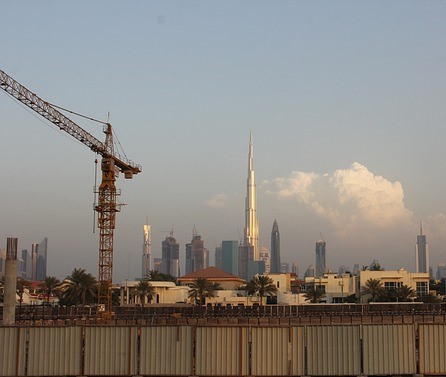Breaking Into the GCC: Insights from Fintech Founders and Leaders
- In the latest edition of our Expanding to the GCC as an Indian Startup webinar series, we asked Ajay Pandey, a serial entrepreneur and sales guru and Sameer Sortur, the founder of SquareCircle as well as the Regional Director of GCC chapters of the Founder Institute to lend their expertise and advice to Indian founders looking to launch their startup into the GCC and MENA markets
Featured panelists:
Ajay Pandey, Co-Founder, Card91 who discussed his path to raising investment in the GCC.
Sameer Sortur, Founder and Chief Executive Officer, SquareCircle Global who shared insights from his experience as an advisor helping startups expand their operations into the GCC.
Here are some key takeaways from the discussion.
What advice would you give early-stage Indian startups looking to expand to the GCC?
Establishing a presence in the GCC requires a fortified vision and a deep understanding of the customer.
Consumer behavior in India differs drastically from that of the GCC
- It is crucial to conduct primary research before launching into the market
- Adapting to the culture of GCC countries will help garner the support of local investors while also providing you with more insights on the area
Once the product has been piloted, UAE is a favorable point of entry for Indian founders, as it offers many resources to help startups takeoff
- Institutions like the Dubai International Financial Centre and the Abu Dhabi Global Market provide the flexibility to test your product in the market
- There are several competitions to enter your product into that offer reward money conducted through entities like the Dubai Chamber of Commerce
How can Indian founders raise funding from GCC and MENA investors?
Capturing the attention of local investors and customers in the GCC and MENA can be a lengthy and expensive process; it is essential to come into the market prepared.
The foundation of the product must be strong before approaching angel investors
- Testing your product and raising investment from your home base ensures that you are ready to migrate and demonstrates to GCC investors that your product shows promise
- The product should seem exciting to the investors you are targeting and should offer a solution that is not only applicable to one specific country or city
How important is it for Indian startups to engage with government?
With ever-evolving regulatory laws, GCC governments play a pivotal role in the success or lack thereof of migrating Indian startups. It is crucial for startups to present themselves as an opportunity for the country to grow.
Governing bodies’ primary motivation is economic development
- A product with the potential of economic opportunity is advantageous to the government and thus, the UAE is likely to adapt to meet the needs of your business
- It is important to make your intentions of establishing a base in the UAE clear to the government
Open and honest engagement with the government places your business in an advantageous position
- Understand new developments in local policy and regulations to better equip your product with the tools to succeed
- Avoiding the government or failing to form a relationship will not aid you in promoting your business
What challenges do Indian startups typically face in entering and scaling in the GCC and MENA?
While hubs like Dubai that have large expat populations welcome Indian founders, much of the GCC and MENA is still focused on localization.
There are many cultural barriers between India and the GCC and MENA
- Local customers in the GCC may not perceive your solution in the same way Indian customers do. The customer discovery process can take time and resources
Some governing bodies are not yet flexible and may not allow for a very globalized presence
- Saudi Arabia pressures businesses to localize as much as possible rather than establish a globalized presence
- Increasing transparency from the government will help create a more welcoming climate for entrepreneurs
Which country will ultimately win the GCC race to be the region’s tech hub – the UAE or Saudi Arabia?
Both the UAE and Saudi Arabia have capital to offer to FinTech founders, but it ultimately comes down to their execution and regulation.
The UAE is the current frontrunner
- The UAE can serve as a gateway to the MENA market for migrating tech founders
- In contrast with Saudi Arabia, the UAE provides global opportunity as opposed to merely local opportunity












































